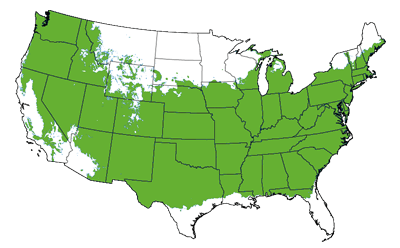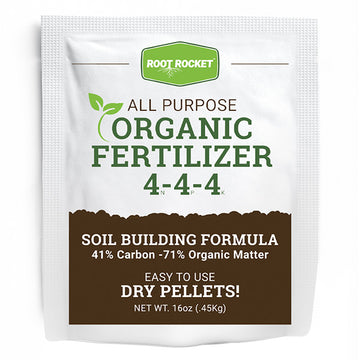Tamukeyama Japanese Maple
Product Details
 Growing Zones 5-8
Growing Zones 5-8
| Soil Type | Acidic, Adaptable, Well Drained |
| Sunlight | Full, Partial |
| Drought Tolerance | Semi |
| Mature Height | 6-8 Feet |
| Mature Width | 8-12 Feet |
| Fall Color | Red |
| Bloom Color | Red |
| Shipping Restriction | AZ |
Considered by many horticulturists to be one of the best Japanese Maples, the Tamukeyama even received the Gold Medal from the Pennsylvania Horticultural Society. Beyond being absolutely stunning, the Tamukeyama Lace Leaf is a compact and hardy variety that is extremely low maintenance. And the color? You are sure to love 3 seasons of regal reds and purples. There is no question, this beauty should definitely be considered when shopping new trees for sale.
The weeping shape, cascading branches, and lacy, petite leaves of this variety are a sight to behold. In spring, leaves emerge a deep purple-red. As spring becomes summer the reds begin to take over. Cool-weather arrives, bringing about the final leaf transition, a bright, bold, scarlet red.
This ancient variety is a perfect accent or focal tree for water, rock, or meditation gardens as well as decks, patios, and anywhere you need a pop of great color and style! This compact Maple can tolerate full sun in cooler climates. However, in southern regions be sure that your tree receives afternoon shade to avoid sun scorch.
Plan for a mature height of 6 to 8 feet and a spread of 8 to 12 feet. This variety is great for containers and tends to stay a bit smaller in a container. Learn more on the top 10 Japanese Maple tree varieties and the options.
The Tamukeyama Japanese Maple is a tree you will treasure for years to come. Order yours today to have it delivered from our online plant nursery.
How Fast Does This Tree Grow?
Grows at a moderate rate to a mature height of 4-6 feet.
How To Prune The Tamukeyama
Pruning is not generally required, but, if needed, it should be done when they are dormant to remove any dead, dying, or crowded branches, or to maintain shape.
Where Should I Plant This Japanese Maple
Plant this adaptable tree in a spot that has well drained acidic soil with full sun to part shade exposure in grow zones 5-8.
When planting your Tamukeyama Japanese Maple be sure you have the right location and conditions for your new tree to thrive. Spring and Fall are ideal times to plant. However, if you avoid freezing and hot temperatures you can plant your Maple trees almost any time of the year.
Planting
Lace Leaf Japanese Maples tolerate full sun to part shade. Choose part sun/shade unless you are in a cooler growing zone, like a 5 or 6. In sunny spots you may see some leaf scorch when these trees are young, especially if they are not getting adequate water. Keep your tree watered if you do notice leaf scorch, but don't panic. Leaf Scorch is not going to affect the overall health of your tree.
Japanese Maples prefer soil that is well-drained, but moist, neutral to slightly acidic, and nutrient rich. However, Japanese Maples will adapt to a variety of soils. Mulching will keep the roots moist and protect them from extreme temperatures in winter. Add a layer of 2 to 3 inches of mulch. Do not allow the mulch to touch the trunk as this increases the chances of pests and disease.
Watering
Japanese Maples should be watered often enough to keep the soil moist. Do not allow the the soil to dry completely or be overly saturated. Either condition can harm a Japanese Maple.
Fertilizing
Fertilize in early spring and when planting to give your tree a boost. Choose a slow release fertilizer. When planting take care not to burn the roots by mixing the fertilizer into the soil before placing your tree in the hole.
Maintenance
Lace Leaf Maples don't generally require pruning, but, if needed, prune when they are dormant to remove any dead, dying, or crowded branches, or to maintain shape. Learn more on How to prune Japanese Maples.
The best way to prevent disease and pests is by providing the appropriate care for your plants. Proper location choice, watering, and fertilization are the keys to your success. Scale, Mites, and Aphid are insects that can occasionally affect Japanese Maples. You can treat these pests naturally with horticultural oil, neem oil, or insecticidal soap. For severe infections you can use pesticides like carbaryl, also known as Sevin. Another potential pest of Japanese Maples is the Japanese Beetle. Look into parasitic nematodes and bacillus thuringiensis for effective, organic control of this pest. An alternative to help prevent outdoor pests is also Growing Japanese Maples in pots.
The Tamukeyama Japanese Maple is a perfect accent or focal tree for water, rock or meditation gardens. Plant in a mixed bed with Junipers for out of this world texture. Add a few rocks and your neighbors will think you hired a professional! The Bloodgood Japanese Maple, Weeping Japanese Maple or Coral Bark Japanese Maple could also be an alternative.
For additional options, be sure to browse our Japanese Maple, Dwarf Tree and Maple Tree collections.













